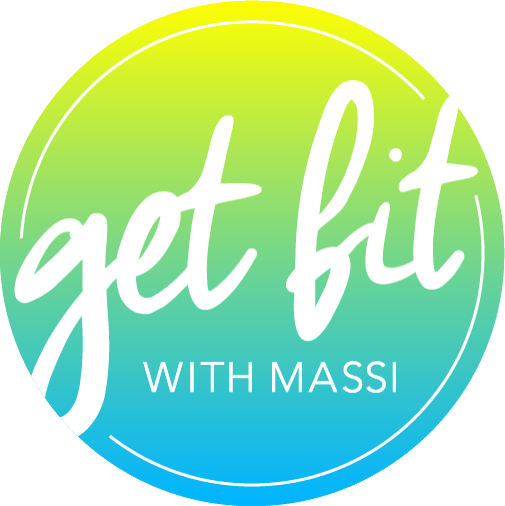Calories vs Macros: What should you track?
Yesterday, I was listening to one of my favorite business podcasts, the Gary V audio experience where they were discussing Gary's trainer's philosophy on fitness.
Early on his trainer told him, “you can't outwork your mouth.”
He is 100% accurate and it's something that I try to drill into my client's heads. ( In the most loving and supportive way lol)
I'm a personal trainer yet, I get more questions about nutrition than I do about which workouts folks should be doing - so I've decided to give ya'll what you want and break down some nutrition basics further..
I've gotten lots of questions that I answer LIVE on Q+A Tuesday like:
What should I eat for breakfast?
What should I eat post workout?
What snacks should I have?
How much water should I drink?
Can I have coffee?
We ask these questions because, subconsciously, we know our nutrition is more important than what we are doing at the gym.
-- I won't answer these questions on this blog post today - because I want to help you shift and focus on what ACTUALLY matters.
If you're “eating healthy” but you're not focusing on proper nutrition, you're going to look exactly the same 3 weeks, 3 months or even 3 YEARS later.
& If you have been on your fitness journey for quite some time and you still haven't seen any results, I would encourage you to seriously reconsider your methods.
At the most foundational level, I want you to understand 2 things about getting the results you want:
- If you want to see body composition change = you have to build muscle
- If you want to build muscle you need to have more protein in your diet
(It doesn't matter if you get your protein from a plant-based source or an animal based source, that’s completely about personal preference.)
If I gave you a workout plan right now, you'd probably have no issues getting to the gym.
And what tends to happen is that most of us think if we just exercise enough, go to the gym enough, sweat it off in the sauna, or wear a waist trainer that we can eat whatever we want, but that's a lie, sis!
Going to the gym is only one half of the results equation because the truth is: You can't outwork your mouth.
If you eat like shit, nothing is going to happen.
After killing it in the gym, we also need to track our eating appropriately for our goals.
& when you start tracking I would encourage you to start paying attention to the numbers.
The great thing is that many women have been (or in the past - already tried to) pay attention to the calories but not necessarily what makes up their Calories.
An analogy I like to use when it comes to calories is the number on the scale.
Calories work similarly to the number on the scale because the number is important to know and be aware of, for the sake of awareness but the number on the scale does not tell you the whole story of how fit or healthy you are.
When we are talking about calories, we're also talking about macros, energy, fuel, taste, enjoyment, culture... in other words, there is so much more to food than the calorie number.
Should you know how many calories are in a meal you're eating? Yes. But what makes up your calories is even more important to body composition change.
“100 calories of potato chips and 100 calories of almonds have very different effects once they hit your digestive system,” Alissa Rumsey, RD, says.
Winging it is overrated -- if you don't understand what you’re eating, it’s not going to matter how much you went to the gym or how many calories you’re supposed to have.
(& sidenote-- if you are wondering if you should just cut out a certain food group, that is a negative! Cutting out food groups does not teach you how to eat properly. It’s actually a huge set up for failure. And if you cut out a food group then you will crave it later on when you are stressed, or you got your period, or your kids stressing you out, or your job is getting too crazy, and then you end up binging and gaining all the weight back that you worked so hard to lose. This cycle has an incredibly negative impact on your mental health which is completely connected to your physical health. So this is a huge NO NO. Remember there is so much more to nutrition than your calories. )
When I work with my clients one on one, we work on getting down to the nitty gritty and specifics of their nutrition.
I guide them to focus on mastering their macros instead of their calories because all calories are not created equal.
& In order to change your body composition, you may need to change your approach.
At this point, you're probably wondering, what the heck are macros?
What are Macros?
Macronutrients (or macros for short) make up the caloric content of a particular food.
There are three contents that make up your macronutrients = carbs, proteins, and fats.
The caloric content of these macros is what makes up that mysterious total number of calories that we all have come to understand.
If I just lost you or confused you, let me break it down further:
1 gram of carbohydrates = 4 calories.
1 gram of protein = 4 calories.
1 gram of fat = 9 calories.
It's not about how many calories are in your food, but what kind of macronutrients make up that food.
Each Macro also serves a very different purpose. For example, Carbs is your bodies preferred energy source, fat helps our body store energy, insulate us and protect our vital organs and protein is responsible for helping rebuild muscle tissue and helping you feel full.
Catch my drift?
This is why you want to focus on the composition of your food because even if you set a strict caloric limit, and stick to it, you could be eating a bunch of garbage and not getting the right number of Macros you need.
To help you visualize the calories vs macro breakdown further, let’s compare a piece of chocolate cake with a floret of broccoli, both equaling 200 calories.
Broccoli= 2 grams of fat, 35.5 grams of carbs, 7 grams of sugar 12 grams of protein.
Cake= 9 grams of fat, 29 grams of carbs, 33 grams of sugar, 5 grams of protein.
The total grams of carbs (carbs are basically sugar) in the broccoli would be around 42.5 grams, and the total carbs in the cake would be around 62 grams.
As you can see, it is the same exact calories for both foods but their macronutrient breakdown is completely different.
Before my clients come to me, some of them have been tracking their calories but they aren’t seeing results. When I switch it up for them and have them track their macros, they often get worried because they are probably eating more calories than they were before their macros were in order.
Here is a secret for you: Changing your body composition is a numbers game. It's all a big math equation.
The intent of this blog is not for me to tell you that you need to become super anal and start tracking your food for the rest of your life, but to help you understand that 1) you can't change what you don't track. & 2) Once you master tracking you need to get your macros in order.
You don't need to have perfect genetics, skills, or talent to get the results you are seeking, what you need is the right tracking system.
Now, I know this sounds all easy in theory but in practice, things can get a bit more tricky.
2 of the most common excuses I hear about why women don't track their food:
They don't have the time.
They feel it's too restrictive.
But here's the thing girl, you got time to check your phone 735 times a day, be on Facebook, Snapchat, and Instagram but you're telling me you don't have time to track your food?
GIRL, there are apps for that! *inserts side eye emoji here*
And two, we're talking about your goals, and it's not about being restrictive it's about AWARENESS. We need to start matching our work ethic and our actions to our mouths (literally!)
Some of the other nutrition-related questions I get often have to do with supplements:
Should I take supplements?
What are the best supplements?
Do you have any favorite supplements?
What supplements do you recommend?
My answer: (1) consistency and (2) discipline.
Back to my favorite corporate thug motivator, Gary V. He asks, “do your actions match your ambitions?”
Hard work is the most controllable aspect and variable of your fitness journey. If you can not only work hard but work SMART - I promise you, you'll get to where you want to be.
*Did you learn anything new in this post? If so, please let me know in the comment box below. I'd love to hear from you!
Obsessed with your success,
Masiel Encarnación


